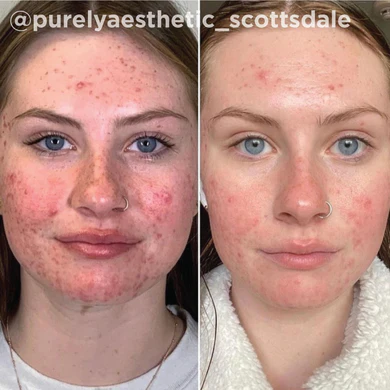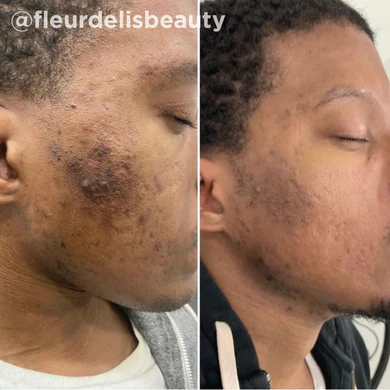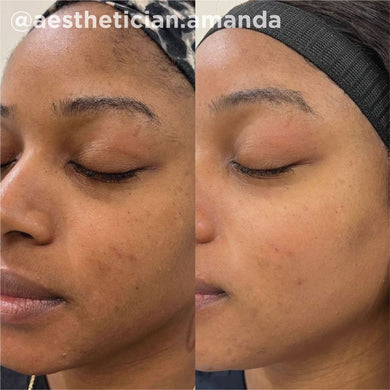What Chemical Peels Do and Why You Should Consider One

If you’ve ever dreamed of achieving smoother, clearer, and more youthful-looking skin, you’ve likely come across the term “chemical peel.” This popular skincare treatment promises transformative results, but what exactly does it entail? Let’s dive into the world of chemical peels to understand their benefits, the science behind them, and why they might be the perfect solution for your skin concerns.
What Are Chemical Peels?
Chemical peels are cosmetic treatments that involve applying a chemical solution to the skin, which causes the outer layer to exfoliate and eventually peel off. The new skin that regenerates is typically smoother, less wrinkled, and may have fewer blemishes than the old skin. Chemical peels can be performed on the face, neck, and hands, making them a versatile option for various skin concerns.
How Do Chemical Peels Work?
Chemical peels use acids of varying strengths to achieve different depths of exfoliation. The primary types of chemical peels include:
1. Superficial Peels: These peels use mild acids like alpha-hydroxy acid (AHA) to gently exfoliate the outermost layer of the skin. Superficial peels are great for treating minor skin imperfections, improving texture, and providing a healthy glow with minimal downtime.
2. Medium Peels: These peels penetrate deeper into the skin, using acids like trichloroacetic acid (TCA) or glycolic acid to reach the middle layer of the skin. Medium peels are effective for treating fine lines, wrinkles, acne scars, and uneven skin tone. They typically require a few days of downtime for recovery.
3. Deep Peels: Utilizing powerful acids like phenol, deep peels penetrate the lower layers of the skin to address more severe skin issues, such as deep wrinkles, significant sun damage, and pronounced scars. Deep peels offer dramatic results but require a longer recovery period and are usually performed under medical supervision. These peels are not recommended for darker skin types.
Benefits of Chemical Peels
Chemical peels offer a range of benefits, including:
– Smoother Skin Texture: By removing the outer layer of dead skin cells, chemical peels reveal a smoother and more refined skin texture.
– Reduced Fine Lines and Wrinkles: Medium and deep peels can significantly reduce the appearance of fine lines and wrinkles, promoting a more youthful appearance.
– Improved Skin Tone and Clarity: Peels can help diminish dark spots, hyperpigmentation, and acne scars, leading to a more even skin tone and clearer complexion.
– Enhanced Skin Radiance: The exfoliation process stimulates cell turnover, resulting in a fresh, radiant glow.
– Acne and Blemish Reduction: Chemical peels can unclog pores, reduce inflammation, and help prevent future breakouts, making them a great option for acne-prone skin.
– Boosted Collagen Production: Some types of chemical peels stimulate collagen production, which improves skin elasticity and firmness over time.
What to Expect During and After a Chemical Peel
The procedure for a chemical peel typically involves the following steps:
1. Consultation: A thorough consultation with a licensed skincare professional to determine the most suitable type of peel for your skin type and concerns.
2. Preparation: Your skin will be cleansed, and a pre-peel solution may be applied to ensure even penetration of the peeling agent.
3. Application: The chemical solution is carefully applied to your skin and left on for a specific amount of time, depending on the type and strength of the peel.
4. Neutralization and Removal: The peeling agent is neutralized and removed, and soothing products may be applied to calm the skin.
After the peel, you can expect some redness, peeling, and sensitivity as your skin heals and regenerates. It’s essential to follow post-peel care instructions, including avoiding sun exposure, moisturizing regularly, and using gentle skincare products.
Is a Chemical Peel Right for You?
Chemical peels can address a variety of skin concerns, but they’re not suitable for everyone. Factors to consider include your skin type, the specific issues you want to treat, and your overall health. A consultation with a skincare professional is crucial to determine if a chemical peel is the best option for you and to select the most appropriate type and strength of peel.
Conclusion
Chemical peels are a powerful tool in the quest for healthier, more youthful-looking skin. With the ability to treat a range of skin issues from fine lines and wrinkles to acne scars and uneven pigmentation, they offer significant benefits for many people. If you’re considering a chemical peel, consult with a skincare professional to explore your options and embark on the journey to revitalize your skin.

Whether you’re new to chemical peels or looking to enhance your skincare routine, understanding what they do and how they work can help you make an informed decision and achieve the radiant, smooth skin you desire. Book your chemical peel today!
Photos are from VIPEEL The highly trusted chemical peels that we use at Medically Fab Beauty

